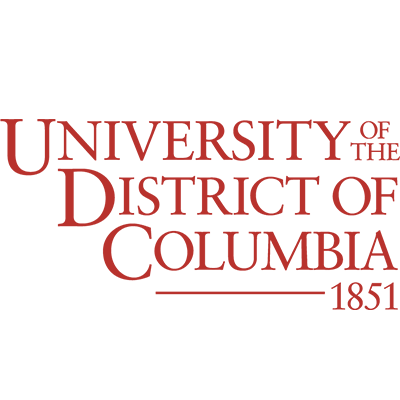This course explores strategic thinking and planning as key leader skills, and culminates in the creation of an actual strategic plan. Students will also learn how organizations can cultivate leadership at multiple levels and become more effective in generating and executing strategy.

This course explores strategic thinking and planning as key leader skills, and culminates in the creation of an actual strategic plan. Students will also learn how organizations can cultivate leadership at multiple levels and become more effective in generating and executing strategy.
Participants will gain a foundation in theories and models of leadership; assess their own leadership style; and learn to develop and answer research questions in leadership.
The University of the District of Columbia is historic and modern, all at the same time. Public higher education in the District is rooted in the school for “colored girls” that Myrtilla Miner founded in 1851 in Washington, D.C., which came to be called the Miner Normal School.
Washington Normal School, a school for white girls established in 1873, was renamed Wilson Normal School in 1913, after James O. Wilson, Washington’s first superintendent of public schools.
In 1929, Congress enacted a statute that converted both normal schools into four-year teachers colleges. For several years, Miner Teachers College and Wilson Teachers College were the only institutions of public higher education in the city.
After the landmark U.S. Supreme Court school desegregation decision, Brown v. Board of Education (U.S. 1954), the two colleges merged in 1955 to form the District of Columbia Teachers College.
Over the next decade, D.C. residents petitioned for an expansion of higher education that would provide training for careers other than teaching. In 1966, Congress enacted the District of Columbia Public Education Act, which established Federal City College and Washington Technical Institute.
Although these schools were still very new, many Washingtonians continued to advocate for a comprehensive university.
The City Council authorized the consolidation of the three schools, and in 1976, began the monumental task of creating a new University of the District of Columbia. In 1977, under President Carter’s leadership, UDC began consolidating its academic programs.
These efforts culminated in the establishment of five colleges: Business and Public Management; Education and Human Ecology; Liberal and Fine Arts; Life Sciences; Physical Science, Engineering, and Technology; and University College and Continuing Education.
UDC continues to transform itself over time to meet the changing needs of its students and the community. The University currently offers 81 undergraduate and graduate academic degree programs through the following colleges and schools
Mission
Embracing its essence as a public historically black urban-focused land- grant university in the nation’s capital, UDC is dedicated to serving the needs of the community of the District of Columbia, and producing lifelong learners who are transformative leaders in the workforce, government, nonprofit sectors and beyond.
Vision
All students will achieve their highest levels of human potential.
Core Values
Excellence
Collaboration
Sustainability
Innovation
Integrity
© 2025 coursetakers.com All Rights Reserved. Terms and Conditions of use | Privacy Policy